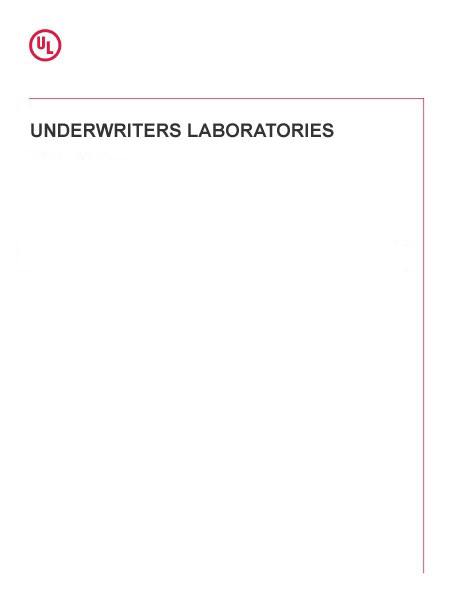
UL 61010-2-032
Product Details
- Edition:
- 2
- Published:
- 01/10/2020


Click here to purchase
Safety Requirements for Electrical Equipment for Measurement, Control and Laboratory Use – Part 2-032: Particular Requirements for Hand-Held and Hand-Manipulated Current Sensors for Electrical Test and Measurement
UL 61010-2-032 (IEC 61010-2-032:2012)
1 Scope and object
This clause of Part 1 is applicable except as follows:
1.1.1 Equipment included in scope
Replacement:Replace the existing text with the following:
This part of IEC 61010 specifies safety requirements for HAND-HELD and hand-manipulated current sensors described below.
These current sensors are for measuring, detecting or injecting current, or indicating current waveforms on circuits without physically opening the current path of the circuit being measured. They may be stand-alone current sensors or accessories to other equipment or parts of combined equipment (see Figure 101). These include measurement circuits which are part of electrical test and measurement equipment, laboratory equipment, or process control equipment. The existence of these current sensors and circuits in equipment requires additional protective means between the current sensor, the circuit and an OPERATOR.
NOTE 1 This part includes also the requirements of Part 2-030. Testing and measuring circuits that are not within the scope of this part are considered to be covered by the requirements of Part 1 or other parts 2s of IEC 61010, and then will also need to meet the requirements of these other parts with the exception of Part 2-030. Current clamp meters and similar currents sensors that have a primary purpose of measuring voltage on a live MAINS CIRCUIT are also within the scope of Part 2-033.
NOTE 2 Some current sensors are also known as current clamps and current probes.
Current sensors require hand manipulation before or after a test or measurement, but do not necessarily need to be HAND-HELD during the test or measurement.NOTE 3 Some current sensors designed for portable use can also be used for fixed installations.
The following types of current sensors are covered:a) Type A: a current sensor designed to be applied around or removed from UNINSULATED HAZARDOUS LIVE conductors. Type A current sensors have defined HAND-HELD or hand-anipulated parts providing protection against electric shock from the conductor being measured, and also have protection against short-circuits between wires and busbars during clamping.b) Type B: a current sensor which has protection against short-circuits between wires or busbars during clamping but without defined HAND-HELD or hand-manipulated parts which provide protection against electric shock during clamping. Additional protective means are necessary to avoid electric shock from HAZARDOUS LIVE conductors which cannot be de-nergised during application or removal of the current sensor.
EXAMPLE 1 Flexible current sensors.
c) Type C: a current sensor without protection against short-circuits between wires or busbars during clamping. Type C current sensors are intended to be applied to or removed from UNINSULATED HAZARDOUS LIVE conductors or from non-limited-energy circuit conductors only when they are de-energised.
EXAMPLE 2 Split-core transducers.
d) Type D: a current sensor designed to be applied around or removed from insulated conductors or from limited-energy circuit conductors.
A Type D current sensor does not need protection against short-circuits during clamping and has no defined HAND-HELD or hand-manipulated parts providing protection against electric shock from the conductor being measured.EXAMPLE 3 Current probes for oscilloscopes and earth leakage current detectors.
NOTE 4 All current sensors can also be used around insulated conductors. In this case, HAZARDS are limited to acceptable levels by the insulation of the conductors.
Key1 JAW END(S)2 JAW3 measuring circuit TERMINALS
1.1.1 Figure 101 – Examples of current sensors and their parts
1.2.1 Aspects included in scope
Addition:Add the following two new paragraphs at the end of the subclause:
Requirements for protection against HAZARDS resulting from NORMAL USE and REASONABLY FORESEEABLE MISUSE of measuring circuits are given in Clause 101.
Requirements for prevention of HAZARD from arc flash and short-circuits are given in Clause 102.